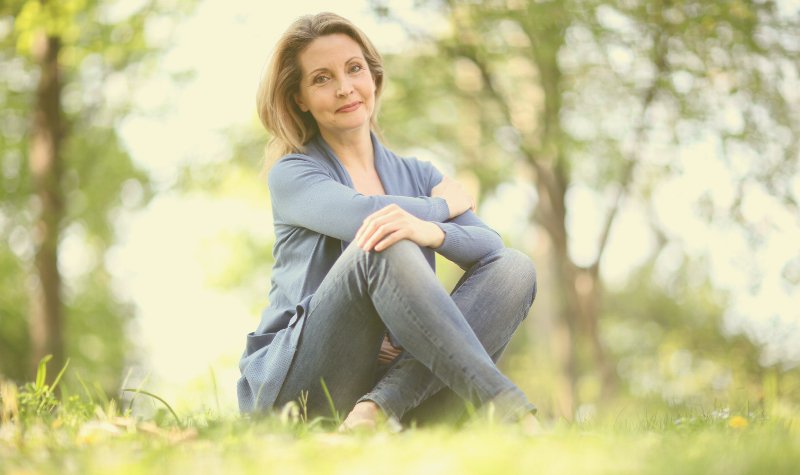Notes from this week’s episode:
Understanding Perimenopause and Menopause:
Menopause is defined as the point when a woman has not had a menstrual period for 12 consecutive months. The average age for menopause is around 51 with perimenopause starting in the early to mid-forties.
What happens to the body during perimenopause and menopause.
Hormonal Fluctuations:
Estrogen and Progesterone: Levels of these key reproductive hormones fluctuate, leading to irregular menstrual cycles. Periods may become lighter or heavier, shorter or longer, and eventually less frequent.
Common Symptoms
Hot Flashes: Sudden feelings of warmth, often with sweating and reddening of the skin, especially in the face and upper body.
Night Sweats: Hot flashes that occur during sleep, often leading to disrupted sleep.
Weight Gain: Changes in metabolism may lead to weight gain, particularly around the abdomen.
Emotional and Psychological Changes:
Fluctuating hormone levels can cause mood changes, irritability, and increased risk of depression or anxiety.
Many women experience memory lapses or difficulty concentrating, often referred to as “brain fog.”
The Importance of Self-Care During This Transition:
Self-care is more critical than ever during perimenopause and menopause.
Caring for your mind and body can improve your quality of life.
Ayurvedic Support for Menopause
Ayurveda doesn’t see the menopause as a condition that needs treating, it sees it as a significant transition and looks at us as individuals who might need support according to our nature.
Ayurveda always looks at individual nature – our doshas, nutrition and lifestyle and helps as make gentle adjustments to stay in balance or regain balance.
Changing hormones & changing doshas
Menopause is a time of transition of hormonal changes, and also doshic changes.
Each stage of life is governed by a particular dosha, in childhood we are under the influence of the kapha energy.
From youth to our middle years we’re in the pitta stage of life. For most, this is a time of study, then work and career, it’s an active and ambitious stage of life governed by the fiery influence of pitta.
At the time we enter menopause, we’re transitioning from the pitta to the vata stage of life. From fire, to air. That’s why we might experience more anxiety and dryness in the body as the qualities of vata increase.
Simple adjustments that offer natural support are:
-
paying attention to hydration with warm herbal teas
-
using goody quality oil in cooking and for massage
-
restorative yoga – Yin Yoga
-
resting digestion with simple nourishing meals
-
avoiding hot spices, alcohol, and caffeine
The benefits of staying active
Since Menopause leads to a decline in estrogen levels, this can result in decreased bone density and an increased risk of osteoporosis. Weight-bearing exercises like walking, jogging, and strength training help stimulate bone formation and slow down bone loss, reducing the risk of fractures and maintaining bone health.
Regular physical activity helps maintain a healthy weight by boosting metabolism and burning calories. Strength training also helps build muscle mass, which can prevent the loss of muscle that often occurs with age, keeping your body composition in check.
Mental and Emotional Well-being:
Techniques to reduce stress and maintain mental clarity.
Hot flashes and anxiety
Hot flashes can come with a rush of energy that can feel physically and mentally unsettling. Experiment with different practices like the cooling breath, tapping, or gentle stretching to let them pass as peacefully as possible.
It can be helpful to talk with other women and share your experience.
Ananga: I have a friend who said that she would feel like she was losing her mind as a hot flash was about to begin. Just before she felt any rising heat she would feel this really intense strain on her mind, and then the heat would come and then it would pass. Once she understood what was happening, it helped greatly.
What helps:
Many women are living in energy debt
Between holding down a job, maintaining relationships, and caring for her family, a woman often blows through the energy she “earns” from sleep, good food, and good company. Her daily needs repeatedly outpace her daily intake of energy. – Claudia Welch
When we dip into our energy reserves we’re going to the red and deplete our nourishment. Welch likens this to spending money we don’t have. Eventually we reach a tipping point where sour health and wellbeing are affected. Something has to give.
The time of menopause is a good opportunity to explore supporting our healthcare and deeper level. And giving ourselves permission to rest.
The opportunities in menopause
Ayurveda regards this transition as a move into our wisdom years.
It’s the season of life intended for wisdom, and spiritual growth.
The opportunity at this time is to get to really know ourselves and what we want for our lives on a deeper level.
It can be a very reflective time, we might feel more creative, introspective, reflective.
And a time when we reconsider our boundaries.
Perimenopause and menopause are natural stages of life that, while challenging, offer an opportunity for growth and self-care. By understanding these changes and taking proactive steps to care for your mind and body, you can embrace this transition with confidence and grace.
Resources:
“Menopausal Years – The Wise Woman Way” by Susun Weed
“Balance Your Hormones, Balance Your Life: Achieving Optimal Health and Wellness through Ayurveda, Chinese Medicine, and Western Science” by Claudia Welch
Explore Dr. Welch’s online, self-paced Women’s Health and Hormones course. She also offers a Menopause Chronicles monthly membership.



